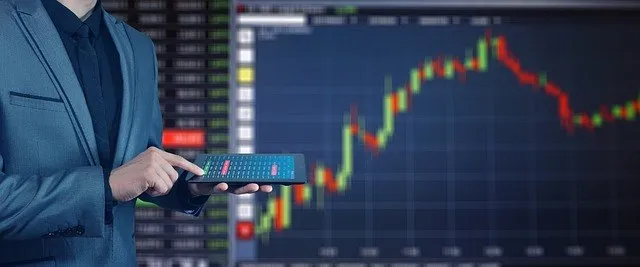The Influence of Political Events on Share CFD Market Trends
Markets react to a variety of factors, but few things create volatility quite like political events. Elections, policy changes, trade agreements, and geopolitical tensions can all have immediate and lasting effects on stock prices. For traders involved in Share CFDs, understanding how these events shape market trends is essential for making informed trading decisions and managing risk effectively.
The Impact of Elections and Government Policies
Elections are among the most significant political events that influence stock markets. The uncertainty surrounding leadership changes and future policies can lead to increased volatility. Traders often see sharp price movements in stocks tied to industries affected by new administrations, such as healthcare, energy, and finance.

Image Source: Pixabay
- Pro-business policies tend to boost investor confidence, leading to higher stock prices and bullish market trends.
- Regulatory uncertainty can create market hesitations, causing stocks to trade sideways or decline.
- Tax policy changes can impact corporate earnings, affecting valuations in Share CFDs.
Traders who stay ahead of political developments can position themselves accordingly, either capitalizing on bullish trends or short-selling stocks expected to decline under new policies.
Trade Agreements and Economic Policies
Trade deals, tariffs, and economic agreements between nations have a direct impact on businesses, influencing stock prices and overall market sentiment. Companies involved in import-export activities, manufacturing, and supply chains are particularly sensitive to these changes.
For traders using Share CFDs, stocks in industries such as automotive, technology, and agriculture often experience sharp price swings when trade agreements are signed, renegotiated, or abandoned. If new tariffs are introduced, affected stocks may see declines, while industries benefiting from eased trade restrictions may experience rallies.
Geopolitical Tensions and Market Volatility
Conflicts, sanctions, and international disputes can trigger immediate reactions in global stock markets. When tensions rise between major economies, investors often shift their funds into safer assets, causing stock markets to decline.
- Defense and cybersecurity stocks often gain momentum during heightened geopolitical risks.
- Energy markets react strongly to conflicts in oil-producing regions, impacting related Share CFDs.
- Technology and export-driven companies may see losses if sanctions or trade restrictions are imposed.
Traders who monitor global events can anticipate market shifts and adjust their positions accordingly, using short-selling or hedging strategies to manage uncertainty.
Central Bank Decisions and Monetary Policy
While central banks operate independently of political leadership, government policies can influence their decisions on interest rates, inflation control, and stimulus measures.
- Interest rate hikes generally cause stock prices to decline as borrowing costs rise for businesses.
- Economic stimulus packages can fuel stock market rallies, boosting Share CFDs tied to consumer spending and infrastructure projects.
- Currency fluctuations impact multinational companies, affecting earnings reports and stock valuations.
For CFD traders, staying updated on central bank statements and monetary policy shifts helps in identifying potential market movements and avoiding unnecessary risks.
Preparing for Market Reactions to Political Events
Political uncertainty creates both risks and opportunities in Share CFDs. Traders who monitor news developments, analyze historical market reactions, and use risk management tools can navigate these events with confidence.
- Using stop-loss orders helps protect against unexpected market swings.
- Diversifying across industries reduces exposure to politically sensitive sectors.
- Staying informed on policy changes allows traders to anticipate shifts in stock valuations.
By understanding the relationship between political events and market trends, traders can make better decisions, capitalize on emerging opportunities, and manage risk effectively in the ever-changing world of Share CFDs.
Comments